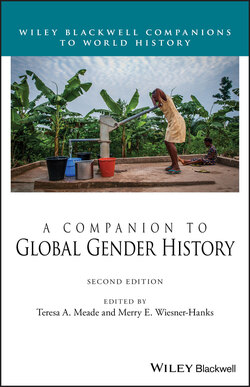Читать книгу A Companion to Global Gender History - Группа авторов - Страница 54
Located Knowledges: Representation and Positionality
ОглавлениеUltimately the question before us is still “who decides?” Cultural, societal, and moral norms exist and operate historically to regulate behavior and law, as Chapter 5 by Susan Kent in this volume makes clear. While feminist and postmodern theories have challenged essentialist concepts, current scholarship often seems an intellectual minefield of issues about who can speak for the other and who has spoken rightly or wrongly in given historical eras. Feminist scholarship, critical race theory, class analysis, and global and world systems’ theories have questioned and challenged Western hegemonic assumptions and illusory universals. Sara Suleri critiques both the authority claimed by Western feminist theorists and the privilege assumed by postcolonial theorists on the basis of race. The first, she says, too often elides race in discussions of women and gender; the second too often gives special status to the racialized body as an “authentic” speaker. Suleri observes that “while feminist discourse remains vexed by questions of identity formation,” its reaction against assumptions of gender universality can grant “an unembarrassed privilege” to “racially encoded feminism” (1992: 758). Feminist discourse needs to guard against illusory assumptions of gender universals; however, too great a focus on the differences that separate women runs the risk of falling back into sexist and patriarchal rationales.
